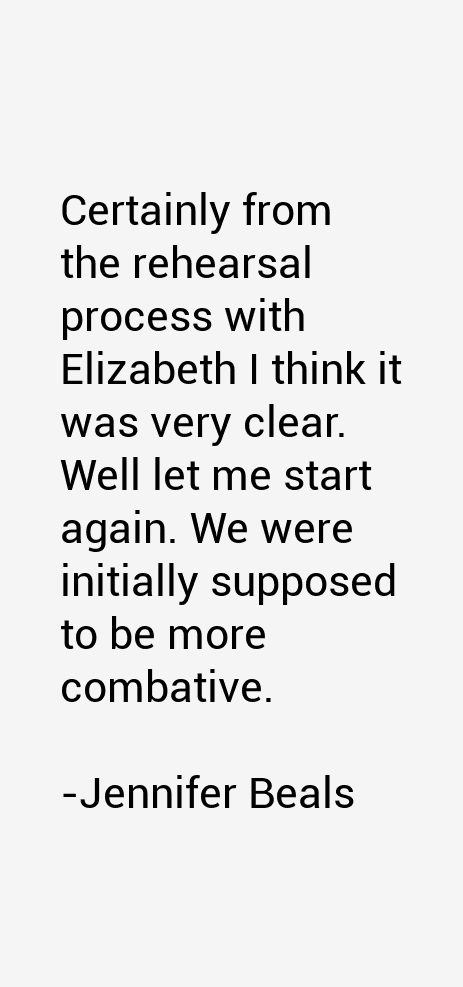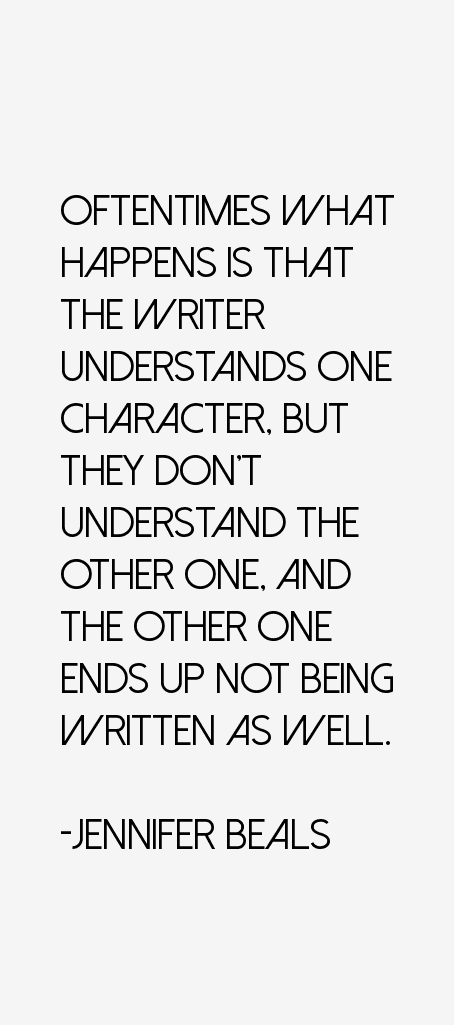Jennifer Beals Quotes & Sayings (Page 2)
Jennifer Beals quotes and sayings page 2 (62 year old actress). Here's quote # 11 through 20 out of the 22 we have for her.
“I think that the two of them have been doing this for a really long time and it is more like sport. Yes, they would love to find a lasting relationship, but it's not likely to happen the way they are going about it.”

“Certainly from the rehearsal process with Elizabeth I think it was very clear. Well let me start again. We were initially supposed to be more combative.”
“It doesn't seem as if there's that much of a difference between a big production and a little production, other than you have a smaller space in which to get dressed and you have a shorter waiting time.”
“Oh, this absolute loneliness and the game - loving to play the game, loving to go and tell stories to men that certainly weren't true, just for the sport of it, just to see how they would react.”
“The love scenes that worked, regardless of the director, were the ones where the actors weren't fearful. When somebody was fearful, you could see it right away. It takes you out of the story, and that's to be avoided at all costs.”
“There was a sense of all the things that go on on the street, particularly in New York, that you are just completely unaware of, that that conversation could be happening at any time. I loved the instability of the camera. It's just an unstable world.”
“I said, wouldn't it be nice, instead of having these women fight with each other over men, which seems to be more of a cliche, wouldn't it be wonderful if they were the true comrades and it took these men much more time to infiltrate their friendships.”
“I've had some of the best craft services on independent movies, actually, because they get more creative, generally, with a smaller budget. The work is still the same. I didn't really notice the difference other than I was getting dressed behind a curtain, basically.”

“Oftentimes what happens is that the writer understands one character, but they don't understand the other one, and the other one ends up not being written as well.”
“I think that in some ways everybody is like Roger. Everybody thinks that when their friends have a problem, that they know the answer and that it's much easier to analyze the problems of other people than your own.”
Jennifer Beals Quotes Rating
No Ratings Yet
Leave A Comment
























